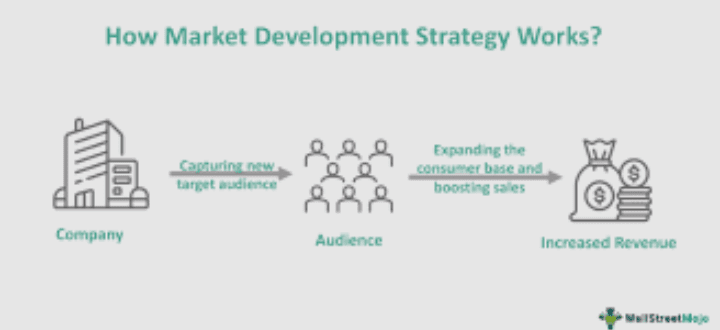Unleashing the Power of Startup Marketing Agencies
Startup marketing agencies play a vital role in the ever-evolving landscape of entrepreneurship, where emerging companies strive to make their mark in the competitive business world. These specialized agencies provide a range of services tailored specifically for startups, helping them navigate the complex realm of marketing and establish a strong brand presence.
With their expertise in digital marketing, strategic planning, and innovative campaigns, startup marketing agencies are becoming indispensable partners for ambitious entrepreneurs looking to accelerate their growth and gain a competitive edge.
In the fast-paced and highly competitive world of startups, having a robust marketing strategy is vital for success. However, many startups face resource constraints, limited expertise, and the need for immediate results.
This is where startup marketing agencies step in, offering specialized services to help these young companies navigate the complex realm of digital marketing and accelerate their growth. In this article, we will explore the role and benefits of startup marketing agencies in driving success for emerging businesses.
Understanding Startup Marketing Agencies
Startup marketing agencies are professional firms that specialize in providing comprehensive marketing services tailored specifically to the unique needs and challenges faced by startups.
These agencies typically offer a wide range of services, including branding, digital marketing, content creation, social media management, search engine optimization (SEO), pay-per-click (PPC) advertising, public relations, and more.
Unlike traditional marketing agencies that cater to established businesses, startup marketing agencies are adept at working with limited budgets, evolving strategies, and the need for rapid experimentation and adaptation. They understand the dynamic nature of startups and focus on driving tangible results while maximizing the return on investment (ROI) for their clients.
Key Benefits of Startup Marketing Agencies
Expertise and Experience: Startup marketing agencies employ professionals with extensive experience in the startup ecosystem. They understand the challenges, trends, and best practices that are specific to startups. By leveraging their expertise, these agencies can develop effective marketing strategies that align with the startup’s goals and target audience.
Cost-Effectiveness: Startups often have limited financial resources, making it challenging to hire and maintain an in-house marketing team. Engaging a startup marketing agency provides access to a diverse team of experts at a fraction of the cost. These agencies can scale their services based on the startup’s requirements, ensuring cost-effectiveness while delivering results.
Scalability and Flexibility: As startups evolve and grow, their marketing needs change. Startup marketing agencies are well-equipped to adapt to these changes. They can quickly scale up or down their services based on the startup’s requirements, allowing for flexibility and agility in the ever-changing business landscape.
Strategic Approach: Startup marketing agencies take a holistic and strategic approach to marketing. They conduct in-depth market research, competitor analysis, and customer profiling to develop targeted campaigns that resonate with the startup’s audience. This ensures that marketing efforts are focused, efficient, and yield higher conversion rates.
Access to Technology and Tools: Keeping up with the latest marketing technologies and tools can be challenging for startups. Startup marketing agencies have access to cutting-edge marketing tools, software, and analytics platforms. By leveraging these resources, they can optimize campaigns, measure performance, and provide valuable insights to drive informed marketing decisions.
Networking and Partnerships: Startup marketing agencies often have extensive networks within the startup ecosystem, including media contacts, industry influencers, and potential partners. Leveraging these networks, they can help startups establish valuable partnerships, secure media coverage, and gain visibility within their target markets.
In the competitive startup landscape, having a robust marketing strategy is crucial for success. Startup marketing agencies play a pivotal role in helping emerging businesses navigate the complex world of digital marketing.
By leveraging their expertise, experience, and specialized services, startup marketing agencies empower startups to reach their target audience, build brand awareness, and accelerate their growth. Engaging a startup marketing agency can be a game-changer for young companies, enabling them to compete effectively in the digital realm and achieve their business objectives.
Read Also: Unlocking Growth with Lean Startup Marketing Sean Ellis PDF
B2B Startup Marketing

B2B startup marketing agencies play a vital role in helping startups overcome marketing challenges and achieve their growth objectives. From strategic planning and specialized expertise to cost-effective solutions and measurable results, these agencies offer startups a comprehensive suite of marketing services tailored specifically to their needs.
By partnering with a B2B startup marketing agency, startups can leverage their experience, knowledge, and networks to establish a strong brand presence, attract leads, and drive sustainable growth. In the competitive world of startups, having a trusted marketing partner can make all the difference in unleashing their full potential.
Understanding B2B Startup Marketing Agencies
B2B startup marketing agencies are dedicated marketing partners that provide comprehensive services tailored specifically for startups operating in the business-to-business (B2B) space. They possess a deep understanding of the challenges faced by startups, such as limited budgets, fierce competition, and the need to build a strong brand presence quickly.
These agencies bring together a team of marketing professionals with expertise in various domains, including digital marketing, content creation, social media management, SEO, and lead generation.
Strategic Marketing Planning: One of the key advantages of partnering with a B2B startup marketing agency is their ability to devise strategic marketing plans. These agencies work closely with startups to understand their unique value propositions, target markets, and growth objectives.
By conducting comprehensive market research and competitor analysis, they develop a roadmap that outlines the most effective marketing strategies and channels for reaching the startup’s target audience. This strategic approach ensures that marketing efforts are focused, efficient, and yield measurable results.
Cost-Effective Solutions: Startups often face financial constraints, making it challenging to allocate substantial budgets to marketing activities. B2B startup marketing agencies understand this predicament and offer cost-effective solutions tailored to the startup’s budget. Instead of hiring an in-house marketing team or investing in expensive marketing software, startups can outsource their marketing efforts to an agency.
This approach saves costs on overhead expenses, employee salaries, and training while gaining access to a team of experienced marketing professionals. Additionally, startup marketing agencies have established relationships with various vendors and media outlets, enabling them to negotiate better rates on advertising and promotional opportunities.
Measurable Results and Analytics: The success of any marketing campaign lies in the ability to measure its impact and make data-driven decisions. B2B startup marketing agencies use advanced analytics tools to track the performance of marketing campaigns, monitor website traffic, measure conversions, and analyze customer behavior.
By closely monitoring these metrics, agencies can identify what works and what needs improvement, allowing startups to refine their marketing strategies accordingly. This data-driven approach ensures that marketing efforts are optimized for maximum effectiveness, helping startups achieve their growth goals.
Agile and Scalable Solutions: Startups operate in a fast-paced environment, where adaptability and scalability are paramount. B2B startup marketing agencies understand the dynamic nature of startups and provide agile solutions that can be adjusted as the business evolves.
Whether it’s scaling marketing campaigns to accommodate business growth or pivoting strategies in response to market changes, these agencies are well-equipped to handle the unique demands of startups. Their flexible approach ensures that marketing efforts align with the startup’s goals, accommodating changing market conditions and business objectives.
Long-Term Partnerships: B2B startup marketing agencies are not just short-term service providers; they aim to establish long-term partnerships with startups. By investing time to understand the startup’s vision, goals, and challenges, the agency becomes an integral part of the startup’s growth journey.
This long-term collaboration allows the agency to adapt strategies as the startup evolves, providing ongoing support and guidance. The agency becomes a trusted advisor, offering strategic insights and recommendations to drive sustainable growth for the startup.
In today’s highly competitive business landscape, startups face unique challenges when it comes to marketing their products or services. With limited resources, a need for rapid growth, and a constantly evolving market, startups require strategic marketing expertise to drive their success.
This is where B2B startup marketing agencies come into play. These specialized agencies understand the nuances of the startup ecosystem and employ targeted strategies to help startups achieve their growth objectives.
Startup Marketing Team
In today’s competitive business landscape, startups face numerous challenges in establishing their presence, attracting customers, and scaling their operations. One crucial aspect that can make or break a startup’s growth is its marketing strategy.
To execute an effective marketing plan, startups must assemble a skilled and adaptable marketing team. In this article, we will delve into the essential components of a startup marketing team and explore how it can drive success.
The Visionary Leader: A startup marketing team needs a visionary leader who can set the direction, define goals, and inspire the team. This leader should possess a deep understanding of marketing strategies, industry trends, and customer behavior. They should be able to articulate a compelling vision that aligns with the startup’s overall mission and guide the team towards achieving marketing excellence.
The Strategist: The strategist is responsible for developing a comprehensive marketing plan that aligns with the startup’s objectives. They conduct market research, analyze competitors, identify target audiences, and define positioning and messaging strategies. A skilled strategist keeps a keen eye on industry trends and adjusts the marketing plan accordingly, ensuring the startup remains competitive.
The Creative Minds: Creative individuals bring life and uniqueness to a startup’s marketing efforts. This includes graphic designers, content creators, and copywriters. They are responsible for crafting engaging content, designing visually appealing materials, and creating a brand identity that resonates with the target audience.
Creative minds collaborate closely with the strategist to deliver compelling and consistent messages across various marketing channels.
The Digital Marketers: In the digital era, startups must have a team of experts who specialize in digital marketing channels such as search engine optimization (SEO), social media marketing, content marketing, and paid advertising.
These professionals possess a deep understanding of digital platforms, analytics tools, and data-driven marketing strategies. Their role is to drive online visibility, generate leads, and optimize conversion rates.
The Data Analysts: Data-driven decision-making is paramount in modern marketing. The data analysts on the marketing team collect and analyze key performance indicators (KPIs), track marketing campaigns, and measure the effectiveness of different strategies.
They provide valuable insights that help the team make data-backed decisions, optimize marketing efforts, and maximize return on investment (ROI).
The Growth Hacker: A growth hacker’s role is to experiment with innovative marketing techniques and identify scalable solutions that rapidly drive growth. They are adept at utilizing unconventional strategies, conducting A/B tests, optimizing conversion funnels, and leveraging emerging trends. The growth hacker works closely with the digital marketers and data analysts to identify growth opportunities and optimize customer acquisition and retention.
The Customer Success Specialist: Startups must prioritize customer satisfaction and retention. The customer success specialist focuses on nurturing relationships with existing customers, ensuring their needs are met, and maximizing their lifetime value. They gather customer feedback, analyze user behavior, and implement strategies to improve customer retention, referrals, and upselling.
In the fast-paced and highly competitive startup environment, a well-rounded and efficient marketing team is a critical component for success. By assembling a team that encompasses visionary leadership, strategic planning, creative thinking, digital expertise, data analysis, growth hacking, and customer-centricity, startups can develop and execute effective marketing campaigns, build brand awareness, attract customers, and drive sustainable growth.
Investing in a strong marketing team will undoubtedly position startups for long-term success in the dynamic business landscape of today.
Startup Marketing Strategies
In today’s fiercely competitive business landscape, startups face numerous challenges when it comes to establishing their brand presence, attracting customers, and driving sustainable growth. Developing an effective marketing strategy is crucial for startups to differentiate themselves and gain a competitive edge. By adopting innovative marketing techniques, startups can maximize their limited resources and generate significant results.
Embrace Content Marketing: Content marketing is an invaluable tool for startups to establish thought leadership, engage with their target audience, and build brand awareness. By creating and sharing high-quality content, such as blog posts, articles, videos, and infographics, startups can showcase their expertise and provide value to their potential customers.
Leveraging social media platforms and optimizing content for search engines can significantly expand the reach and visibility of startup content, driving organic traffic and fostering brand loyalty.
Utilize Influencer Marketing: Influencer marketing has emerged as a potent strategy for startups to amplify their reach and connect with their target audience. Collaborating with relevant influencers in their industry can help startups leverage their existing followership and gain instant credibility.
Startups can partner with influencers for product endorsements, sponsored content, or even co-creating content that resonates with their audience. Influencer marketing can be particularly effective in generating buzz, increasing brand awareness, and driving conversions for startups.
Leverage User-Generated Content (UGC): User-generated content is a powerful asset for startups as it enhances brand authenticity and encourages active engagement from customers. Encouraging customers to share their experiences, reviews, and testimonials through social media, contests, or dedicated campaigns can help startups build trust and credibility.
UGC can be repurposed across various marketing channels, such as websites, social media profiles, and email newsletters, to foster a sense of community and showcase the value of the startup’s offerings.
Implement Personalization and Automation: Startups can leverage technology to deliver personalized experiences to their target audience at scale. By utilizing customer relationship management (CRM) systems, startups can collect and analyze customer data to understand their preferences and tailor marketing campaigns accordingly.
Automation tools can help streamline repetitive tasks, such as email marketing, lead nurturing, and social media scheduling, allowing startups to focus on building relationships and delivering relevant content to their audience.
Tap into the Power of Video Marketing: Video marketing has gained immense popularity in recent years, making it an essential tool for startups to engage with their audience effectively. Startups can create engaging video content, including explainer videos, product demonstrations, and behind-the-scenes glimpses, to captivate their target audience.
Platforms like YouTube, Instagram, and TikTok provide ample opportunities for startups to showcase their products or services, tell their brand story, and foster a genuine connection with their customers.
Leverage Growth Hacking Techniques: Growth hacking involves experimenting with unconventional and cost-effective marketing tactics to rapidly scale a startup’s user base. Startups can explore techniques like viral marketing, referral programs, gamification, and A/B testing to optimize their marketing efforts. By constantly iterating and measuring the impact of these strategies, startups can identify the most effective channels and tactics to drive growth.
A well-crafted marketing strategy can make a significant difference in the success of a startup. By embracing innovative techniques such as content marketing, influencer collaborations, user-generated content, personalization, video marketing, and growth hacking, startups can effectively navigate the competitive landscape, build brand equity, and connect with their target audience.
While the specific strategies may vary depending on the startup’s industry and target market, the underlying principles of authenticity, relevance, and creativity remain consistent. By adopting these marketing strategy ideas, startups can position themselves for continued success and sustainable growth in today’s dynamic business environment.
Startup Marketing Costs
In today’s competitive business landscape, startups face significant challenges when it comes to effectively marketing their products or services. While having a great product is essential, it is equally important to allocate resources towards marketing efforts to reach the target audience and generate awareness, leads, and conversions. However, determining the appropriate marketing budget for a startup can be a daunting task.
Understanding Startup Marketing Costs
Branding and Identity Development: Establishing a strong brand identity is crucial for startups. Costs associated with branding include logo design, brand messaging development, website creation, and other visual and written communication materials. Depending on the complexity and the level of expertise required, branding costs can range from a few hundred to several thousand dollars.
Digital Marketing: Digital marketing is a cost-effective way for startups to gain visibility and attract potential customers. It encompasses various channels such as search engine optimization (SEO), pay-per-click (PPC) advertising, content marketing, social media marketing, email marketing, and influencer partnerships.
The cost of digital marketing campaigns can vary significantly based on factors like the platform, target audience, campaign duration, and the level of expertise required. It is advisable to allocate a substantial portion of the marketing budget to digital channels, as they offer measurable results and a high return on investment (ROI).
Public Relations (PR): PR efforts aim to generate media coverage, increase brand visibility, and establish credibility. This includes press releases, media pitches, media relations, and managing public perception. Startups can opt for in-house PR or hire a PR agency. Costs associated with PR activities can range from hiring a dedicated PR professional to engaging a PR agency, depending on the startup’s needs and goals.
Events and Sponsorships: Participating in industry events, conferences, and sponsorships can help startups reach a targeted audience and build valuable connections. Costs associated with events and sponsorships include registration fees, booth setup, promotional materials, travel expenses, and potential sponsorships.
Startups should carefully evaluate the relevance and potential ROI of each event or sponsorship opportunity to make informed decisions about resource allocation.
Content Creation: Content marketing plays a vital role in establishing thought leadership, engaging the audience, and driving organic traffic to a startup’s website. Costs associated with content creation include blog posts, videos, podcasts, infographics, and whitepapers. Startups can choose to create content in-house or outsource it to freelancers or agencies. The cost will depend on the complexity and volume of content required.
Effective Budgeting Strategies
Set Clear Goals: Defining specific marketing objectives and aligning them with business goals is crucial. Whether it’s generating brand awareness, driving website traffic, or increasing conversions, clear goals will help allocate resources effectively and measure the success of marketing initiatives.
Prioritize Channels: Identify the most effective marketing channels for reaching your target audience. Research your market, analyze competitors’ strategies, and consider the preferences and habits of your potential customers. Prioritize the channels that offer the highest potential for ROI and allocate a significant portion of the budget to those channels.
Test and Optimize: Startup marketing budgets are often limited, so it is crucial to test different strategies and measure their effectiveness. Use data analytics tools to track and analyze the performance of marketing campaigns. Optimize your efforts based on insights gained from the data to achieve better results over time.
Leverage Technology and Automation: Take advantage of marketing automation tools to streamline and optimize marketing processes. Automation can help reduce costs associated with manual tasks and enable startups to achieve more with fewer resources.
Effective budgeting for startup marketing is a balancing act between maximizing reach and optimizing costs. By understanding the various marketing costs and employing strategic budgeting strategies, startups can make the most of their resources and achieve impactful marketing results.
Remember to set clear goals, prioritize channels, test and optimize, leverage technology, monitor performance, build partnerships, and consider outsourcing when needed. With a well-planned and executed marketing budget, startups can establish a strong brand presence, attract customers, and pave the way for long-term success in their respective industries.
Read Also: Streamline Your Tax Preparation Programs with Modern Tax Preparation
Startup Marketing Tools

Startup marketing can be a challenging journey, but with the right set of tools, startups can optimize their efforts, reach their target audience, and drive growth. From customer relationship management and email marketing platforms to social media management tools and analytics software, the available marketing tools empower startups to streamline their processes and make data-driven decisions.
By leveraging these essential marketing tools, startups can level the playing field, establish a strong online presence, and achieve sustainable growth in today’s competitive landscape.
Customer Relationship Management (CRM) Software: CRM software is a must-have tool for startups looking to build and maintain strong customer relationships. These tools help manage customer data, track interactions, and streamline sales processes. Startups can leverage CRM platforms to understand customer behavior, identify potential leads, and personalize communication. Popular CRM tools include Salesforce, HubSpot, and Zoho CRM.
Email Marketing Platforms: Email marketing remains one of the most effective ways to engage with customers and generate leads. Email marketing platforms provide startups with tools to create, automate, and analyze email campaigns.
These platforms often offer features like email templates, segmentation, A/B testing, and analytics. Mailchimp, Sendinblue, and ConvertKit are popular choices for startups looking to optimize their email marketing efforts.
Social Media Management Tools: Startups need to have a strong presence on social media platforms to connect with their target audience. Social media management tools simplify the process of managing multiple social media accounts, scheduling posts, and monitoring performance.
Tools like Hootsuite, Buffer, and Sprout Social enable startups to streamline their social media marketing efforts, engage with followers, and track the impact of their campaigns.
Content Management Systems (CMS): Content marketing plays a pivotal role in establishing thought leadership and attracting potential customers. Content management systems provide startups with a platform to create, publish, and manage content effectively. These tools often offer features such as customizable templates, SEO optimization, and analytics. Popular CMS options include WordPress, Drupal, and Joomla.
Search Engine Optimization (SEO) Tools: Ranking high in search engine results is crucial for startups to increase their visibility and organic traffic. SEO tools help optimize website content, conduct keyword research, analyze competitors, and track search engine rankings. Tools like SEMrush, Moz, and Ahrefs provide startups with valuable insights and recommendations to improve their website’s SEO performance.
Analytics and Reporting Tools: Measuring and analyzing marketing efforts is vital for startups to make informed decisions and optimize their strategies. Analytics and reporting tools enable startups to track website traffic, monitor campaign performance, and gather actionable insights. Google Analytics, Google Data Studio, and Mixpanel are powerful tools that provide startups with comprehensive data visualization and reporting capabilities.
Collaboration and Project Management Tools: Efficient collaboration and project management are essential for startup marketing teams. Collaboration tools facilitate seamless communication, file sharing, and task management among team members. Project management tools like Trello, Asana, and Monday.com help startups stay organized, prioritize tasks, and ensure timely execution of marketing campaigns.
In today’s digital age, startups face immense competition and challenges when it comes to marketing their products or services effectively. Thankfully, the rapid evolution of technology has given rise to a plethora of marketing tools designed to streamline and optimize various aspects of the startup marketing process. These tools not only help startups establish a strong online presence but also enable them to reach their target audience with precision.
Read Also: Beagle Dogs: Description and Complete Grooming Care Guide




